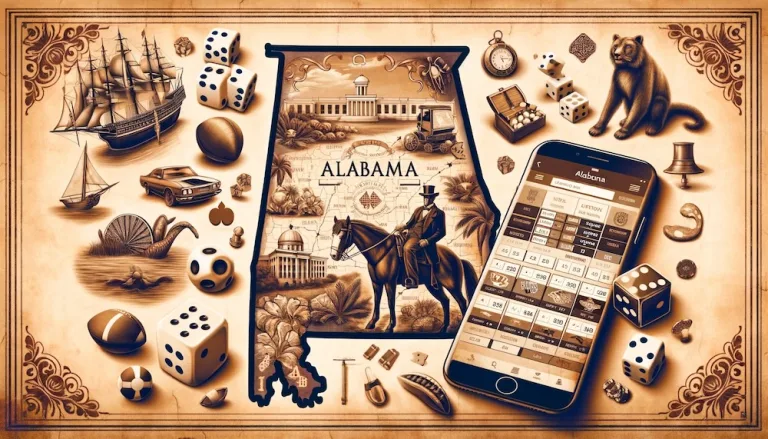Alabama’s complex relationship with gambling spans centuries, from the informal betting practices of its early inhabitants to the stringent regulations that define its current stance. Despite its conservative outlook on gambling, the state has witnessed a burgeoning interest in gaming, juxtaposed intriguingly with the passionate following of its college football teams, notably the University of Alabama Crimson Tide.
Gambling in Alabama has been predominantly restricted to pari-mutuel betting, charitable bingo, and three Native American casinos operating under federal recognition. These establishments, while offering a slice of gaming entertainment, are a far cry from the full-scale casinos and sports betting facilities found in many other states. The historical reluctance to expand gambling laws has roots in both political and social spheres, reflecting a broader hesitancy to embrace widespread gambling activities.
However, recent years have seen a shift in perception towards sports betting, particularly following the Supreme Court’s 2018 decision to overturn the federal ban on sports wagering. While Alabama has yet to legalize sports betting fully, the growing popularity of college football betting, especially on the Crimson Tide, signals a potential sea change. The team, a powerhouse in the NCAA with a fervent fanbase, has inadvertently fostered a keen interest in sports wagering, underscoring a cultural juxtaposition between traditional gambling apprehensions and the unifying enthusiasm for college football.
The Crimson Tide’s success on the field has not only galvanized support across the state but also highlighted the potential economic benefits of regulated sports betting. Advocates argue that legalizing sports wagering could generate significant revenue for the state, tapping into the already vibrant betting culture surrounding college football season. Discussions in the legislature have gained momentum, with proposals aimed at establishing a regulated sports betting framework that could, in time, transform Alabama’s gambling landscape.
As Alabama contemplates this new frontier, the history of gambling in the state serves as a reminder of the evolving nature of gaming and its capacity to adapt to societal trends. The juxtaposition of Alabama’s conservative gambling laws with the widespread enthusiasm for the Crimson Tide encapsulates the state’s complex relationship with betting, offering a fascinating lens through which to view the future of gambling and sports wagering.
With the potential for sports betting legalization on the horizon, Alabama stands at a crossroads, poised to reconcile its historical gambling stance with the modern allure of sports wagering. As discussions continue, the spotlight remains on how the state will navigate this transition, balancing traditional values with the economic and entertainment opportunities presented by legalized sports betting.

David Garato is a luminary in gaming journalism, renowned for peeling back the curtain on the gaming world with his witty and insightful commentary. A decade into weaving stories from the pixelated edges of indie games to the expansive universes of AAA titles, David’s work is a thrilling blend of analysis and adventure. When not writing, he’s live-streaming, sharing his gaming exploits with an engaged and growing audience. David doesn’t just write about games; he lives them, making him a trusted guide in the gaming community.


